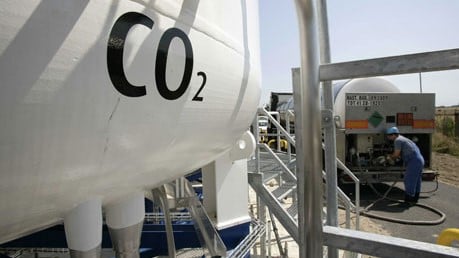
About the Course
his course provides learners with the key components, loads and interfaces affecting dynamic riser response, and how these are simulated within the analysis. In addition to riser configurations and components and their analytical modelling, this course also presents the dynamic loads on risers from vessel motions, waves and vortex shedding and the analytical methods for their assessment. The critical failure modes for rigid and flexible dynamic risers are presented in this course, while also covering analytical methods for prediction of failure. This course also details industry software packages for undertaking dynamic analyses and a detailed break-down of setting up and running a dynamic analysis using a leading industry package, OrcaFlex.
Explaining the interfaces between the riser, the vessel and seabed and their influences on dynamic response, this course is suitable for engineers wishing to undertake or commission analysis of rigid or flexible dynamic risers.
Course Content
-
Day One
Dynamic riser types and uses
-
Production vessels
-
Top-tensioned risers
-
Flexible risers
-
Steel catenary risers
-
Hybrid risers
-
Drilling risers
Introduction to FPSOs
-
Overview of FPSOs
-
Types of FPSO
-
Mooring and turret arrangements
Riser interfaces and components
-
Overview of riser to vessel interfaces
-
Top-tensioned riser components
-
Flexible riser components
-
Steel catenary riser components
-
Hybrid riser components
-
Drilling riser components
-
-
Day Two
Global bending and dynamic analysis
-
Analysis steps
-
Software
-
Catenaries
-
Pipe stresses
-
Worked example
-
Vessel motions and dynamic loads
-
Load cases
-
Fatigue assessment
FPSO vessel motions
-
Components of motion
-
Types of vessel motion
-
Wave frequency motion
-
Drift and higher order motion
-
Defining motion with RAOs
Waves and currents
-
Metocean data
-
Tides
-
Wind
-
Currents
-
Waves
-
Theories & spectra
-
Hydrodynamic loadings
Soil-riser interactions
-
Soils and soil types
-
Survey methods
-
Deriving soil properties
-
Riser behaviour
-
Scour, settlement, and embedment
-
-
Day Three
Vortex-induced vibrations
-
Sections of risers at risk
-
Modelling VIV
-
General design approach
-
Riser dynamics and natural frequency
-
Orcaflex approach
-
Tank trials comparisons
Fatigue and fracture mechanics
-
Fatigue loadings
-
Riser fatigue assessment
-
S-N curves and SCF stress concentration
-
Rainflow counting
-
Flexible and umbilical fatigue mechanisms
-
Fracture mechanics
-
Improving fatigue life
Design basis and riser analysis
-
Design codes and considerations
-
Typical development of design
-
Input verification
-
Modelling of non-linearities
-
Design of connectors
-
Basis of design
-
Prepare input data
-
Modelling process
-
Output data analysis
-
Learning Outcomes
Upon completion of this course, participants will be able to:
-
Describe dynamic riser configurations and components and how they are modelled in dynamic analysis
-
Explain the dynamic loads acting on a riser and how these loads are generated and assessed
-
Predict dynamic responses of risers
-
Describe the critical failure modes for both flexible and rigid risers and how onset of failure is predicted
-
Apply the main industry design codes and practices relevant to dynamic riser analysis
-
Identify the main industry software packages available for dynamic riser analysis
-
Class Materials
- Case studies that explore real-world grid integration challenges and their solutions.
- A comprehensive course package detailing all essential topics and technical data.
- Detailed notes from the tutor, Martin, offering additional insights and expertise.
- A collection of references and practical worked examples to deepen understanding and application of the material.
-
Start Dates
Our courses are delivered live online by expert tutors from 9am to 5pm each day, with class sizes capped at 12 participants to ensure personalised attention.
2025 Public Course Dates:
-
17th - 19th June (09:00-17:00 UK)
For other dates, please speak to the team.
-
-
Jeenius
Participants in the course gain access to Jeenius, a cutting-edge learning platform that offers comprehensive support tools. This platform includes all course notes, recordings of the sessions for later review, and the opportunity for one-on-one support with the tutor. Additionally, Jeenius provides access to the latest insights in renewable energy enhancing the learning experience with up-to-date industry knowledge.
-
In-Company Delivery
For in-company delivery options and content customisation to meet your specific needs, please don't hesitate to reach out to us.
-
Fee
£2,195 per person.
A discount is available if registering 3+ people.
Your Tutor

Martin East
BSc(Hons), MSc, CEng, MIMechE
LEAD TUTOR
A chartered mechanical engineer, Martin's expertise in finite element analysis, particularly with the Abaqus non-linear FEA software, is noteworthy. Martin's role has encompassed consultancy projects, analysis, and presenting various training courses, highlighting his extensive knowledge and experience
Testimonials
"The course surpassed my expectations - the contents of the course were covered in detail and delivered in an engaging manner. The course materials were excellent and will be a very useful source of reference in the future"
“Jee is highly advanced and at the cutting edge in delivering solution to subsea pipeline issues.”

